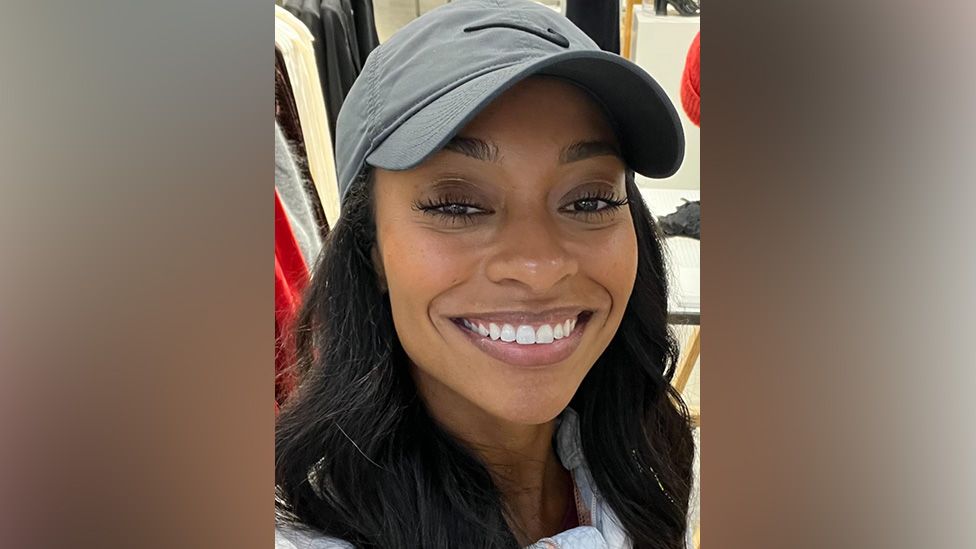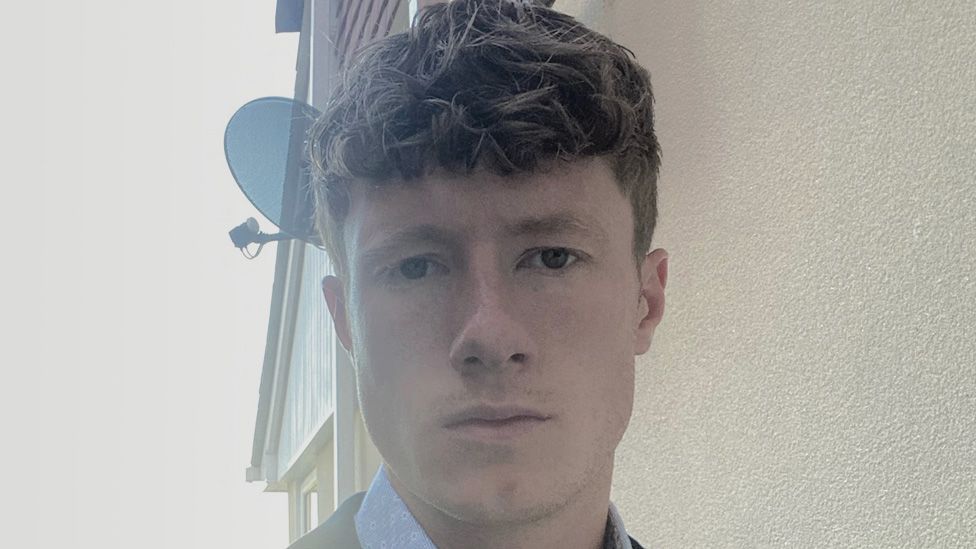Hollywood strikes: ‘Most of us have second jobs’
If you’re eagerly waiting for the new Wicked film or next series of Stranger Things, you might be in for a long one.
Some of the world’s biggest films and TV shows have hit pause on production, as actors and writers in Hollywood strike over pay and worries about the impact AI could have on jobs.
It’s the biggest industry shutdown for over 60 years, meaning over 170,000 workers will refuse to perform any part of their job.
And A-listers have been out in full force, switching the red carpet for picket lines.
Actors like George Clooney and Jennifer Lawrence have joined the strike, and some, like Jason Sudeikis have turned up to picket lines outside big studios including Disney and Netflix.
But the strike isn’t just affecting the stars of the industry – it’s the names who may never have walked a red carpet or appeared in a blockbuster movie.

Liz Lafontant says streaming has had a “significant impact” on her pay
Actor and producer Liz Lafontant moved from Orlando to Los Angeles during the pandemic in hope of pursuing her dream without an agent.
She ended up landing a recurring guest star role in Tyler Perry’s Bruh, and another role in TV drama The Oval.
But she says work started to “dwindle” after this and she started to work as a personal assistant.
Since the pandemic, she says the rise of streaming has had a “significant effect” on her pay cheque and many of the actors on strike can’t afford healthcare.
“Just like everyone else in the world, most of us have day jobs or another form of income because it isn’t sustainable,” she says.
“The ones that you see on the red carpets and these blockbuster movies are making a substantial amount but the majority are not.”
‘More compassion’
Like many other actors and writers in America, she’s committed to staying on strike for as long as it takes. But she admits it’s going to be tough.
“You don’t want people to know or think that you’re financially struggling – but I think the transparency will maybe allow people to see what’s really happening.”
She also wishes people were “more compassionate” towards actors.
“There’s so many things you have to balance as an actor, you have to be strong to do it.”

Alex is a screenwriter, and he isn’t in support of the strikes
But against a backdrop of nurses and doctors also going on strike in the UK, not everyone in the industry feels the same.
Alex Edge, 26, is a full-time screenwriter from Portsmouth who’s worked in the UK and on American TV shows.
“I may take a controversial stance but I’m not really in support of the strikes,” he says.
“There’s people, especially in the UK, nurses having to go to food banks because they can’t afford the food they want and they’re saving lives so it’s really a matter of perspective.
“It is very difficult in Hollywood – it’s always been difficult.”
This fight between studio bosses and crew isn’t just about pay – AI is also seen a threat by some actors, especially those who work as extras, and fear they may lose their jobs.
But Alex feels the technology isn’t something actors and writers around the world, including in Hollywood, should worry about.
“I hope we take AI in our stride and we use it as a tool instead of worrying about it. Technology evolves. We can use AI as a tool to create better stories and films.”
He also works with new writers to help them break into the industry and says AI is useful for building plots and structure, like “an assistant when you’ve hit a creative wall”.
“We shouldn’t focus on the negatives,” he says.
But for actors like Liz, AI is a tool which shouldn’t go anywhere near a film set.
“When you see the ground-breaking performances that win Academy Awards and bring people together, I don’t think there’s any way that AI can do that.
“I think we can use AI for the less creative tasks but I don’t care how trained it becomes, it’s still going to be flat.”



